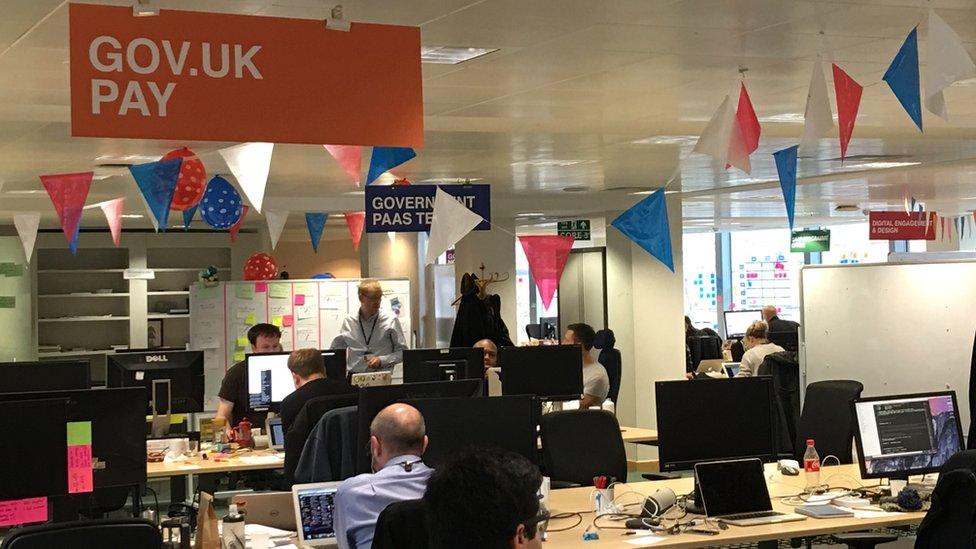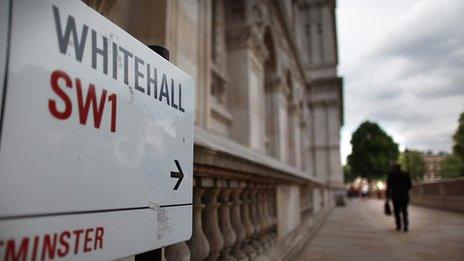New head of Government Digital Service announced
- Published

Kevin Cunnington has been appointed head of the Government Digital Services (GDS).
He was formerly director of business transformation at the Department for Work and Pensions
GDS runs gov.uk, the government's overarching website, and advises departments on how to provide online services and manage data.
Cabinet Office Minister Ben Gummer said he would "continue the transformation of government services".
Mr Cunnington, who becomes the third chief executive in a space of just over a year, said he was "delighted to be joining" and wanted to "continue to improve digital services and increase value for money for taxpayers".
He succeeds Steve Foreshew-Cain, external who said in a resignation post on social media that the unit was in strong shape and committed to continuing to making government simpler and more effective.
Praising his team, he wrote: "Collectively they are the best shot we have to transform government for the internet era. And we all need them to do that."

Analysis - by Rory Cellan-Jones, BBC Technology Correspondent

GDS has divided civil servants
To its supporters the Government Digital Service is a shining example of how to bring innovation into public service IT projects via a team of fast-moving and imaginative developers ready to break with convention and cut through civil service bureaucracy.
To its detractors, it is a collection of naive and arrogant young know-it-alls who are better at their own PR than actually delivering improved government services.
Now it looks as though the enemies of GDS, which include some senior civil servants, have won a victory.
The appointment of another chief executive, just a year after the founding leader Mike Bracken left, is being painted by the Cabinet Office as just another step in the evolution of the service.
But many GDS supporters are clear that this is the revenge of the mandarins, and fear it signals a retreat from plans to bring digital innovation to all areas of government activity. There is particular concern about what it means for the Department for Work and Pensions (DWP) where GDS was involved in trying to rescue the failing Universal Credit IT system.
The new GDS boss Kevin Cunnington is not being replaced in his role at DWP - does that mean that the immensely difficult job of trying to deliver benefits in a more digital fashion has been put on hold?
Some in government may feel that the revolutionary fervour of the GDS team was fine five years ago, but there now needs to be a period of calm consolidation.
But in the words of crossbench peer Baroness Lane Fox, who was the inspiration behind the foundation of the service, it would be an "immense waste of taxpayers' money" not to build on the success it has achieved so far.

One of GDS' key projects, Notify, recently moved into private beta testing.
Notify is a service which will allow departments across government to keep in touch with citizens using their services via email, text or letter.
Another, called Pay - which enables government departments to receive payments or to make refunds - has been approved to process credit and debit card payments on behalf of other government departments and wider public sector organisations.
The government's 2015 spending review outlined a £450 million investment in the service.
- Published11 February 2016
- Published12 June 2013
